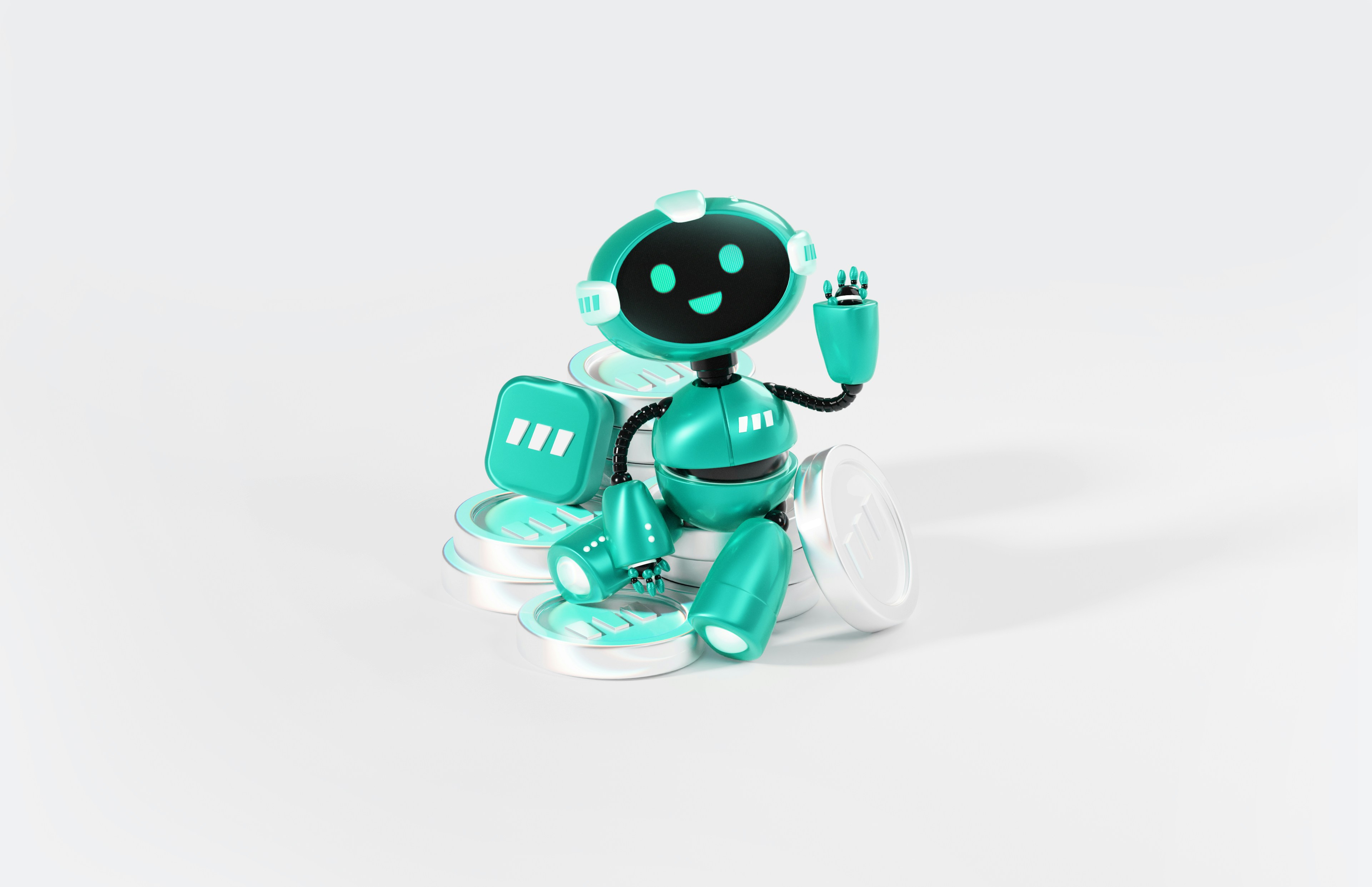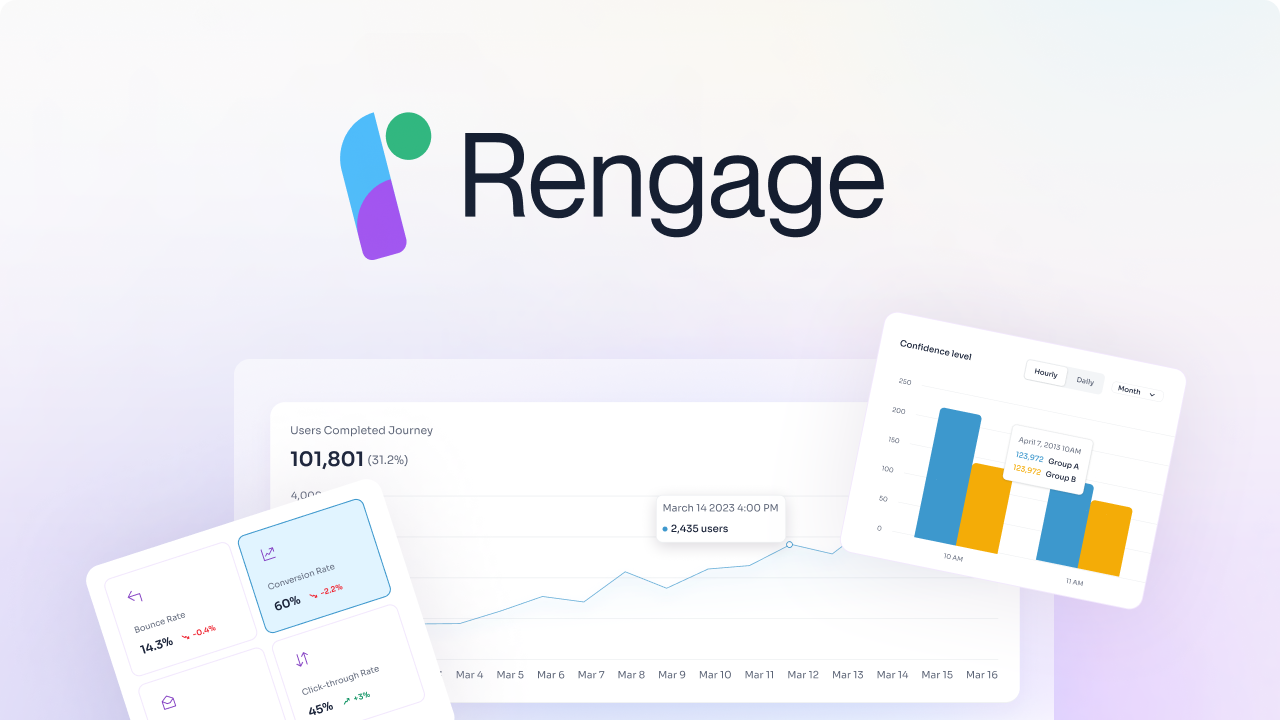Are you optimizing your customer journey effectively? Understanding the value of the marketing automation customer journey is essential to make the most of your customer lifecycle management. By leveraging marketing automation tools, you can create personalized marketing campaigns that cater to the different stages of your audience. Learn how to boost engagement and conversions by tailoring your customer journey to the unique needs and preferences of your target audience. Embrace the power of automating your marketing efforts and see your business flourish!
What Is Marketing Automation?

Nurture Leads
Nurturing leads is crucial for any business. It is important to bring new customers into contact with your brand and obtain their permission to send them information about your business. As a business owner, you may not have the time to nurture every lead. That’s the beauty of automated marketing. It makes your job easier by allowing you to concentrate on other aspects of your business while automation keeps tabs on potential customers.
Personalize Customer Service
Customer service is key in any industry that deals with people. Relationships are built on connections, and your customers expect it. Personalizing the journey for your customers is essential to making the sale and retaining their business. Automated marketing helps you reach the right customer with the right content at the right time. The key is to offer them tailored messaging that’s timely, relevant, and effective.
Improve Relationships
An essential benefit of marketing automation is that it enables you to reach more potential customers across multiple channels. With little effort on your part, you can spread brand awareness and spark interest in your business. A customer’s trust and brand awareness increase when they hear from you on a consistent basis.
This doesn’t mean you should blast them with annoying daily emails, but you should maintain consistent, respectful contact. Automation helps fill the communication gap between your customers and you, reminding customers that you’re there when they need you and helping you build a solid following for your business.
Connect Across Many Channels
Trying to connect with customers on your own is a difficult and time-consuming endeavor. Automation software allows you to reach customers through a variety of channels, including email, your website, and social media.
Automated contact takes the pressure off the customer, acting as a safety net, allowing you to nurture and support your customers without the hassle or pressure. Reliable automation software allows you to keep track of how various channels are performing, seeing which customers you’re reaching and what marketing strategies are working.
Understand Your Customer
Marketing automation helps you understand your customers’ needs, making it easier to address their concerns and provide what they want. Knowing how potential customers are interacting with your brand provides valuable information. Understanding who is visiting your website, reading your emails, and viewing your content offers great insight into the minds of your customers.
Online customers expect interaction and help as they view your products. Without this attention, they will soon be on their way to your competitor’s website. Understanding what customers want and how they think can help you keep customers hanging around longer and abandoning carts less, allowing you to provide a higher standard of service at every level of the buying process.
Related Reading
The Four Building Blocks to Marketing Automation

Unified Customer Data
To implement successful marketing automation, it is essential to have a strong foundation in place. One of the core elements that ensure the effectiveness of marketing automation is unified customer data. Building a centralized customer database is crucial for connecting the data dots between systems.
By integrating data from CRM, transactional, behavioral, and social sources, marketers can gain a consistent understanding of customers' past events, behavior, and preferences. This integrated customer data gives insights for better targeting and personalization of future interactions. This process requires strong technical capabilities and system integrations to support marketing needs for customer insights.
Segmentation Filter
Another essential element for successful marketing automation is a powerful segmentation filter. This filter connects the unified customer data and enables marketers to create smart customer segments based on cross-data analysis.
By applying different filtering criteria and specific rules, marketers can create dynamic segments that align with the right marketing actions. This segmentation filter is crucial for dealing with the constantly changing digital consumers and ensuring targeted marketing efforts.
Customer Lifecycle
Mapping customer segments to a lifecycle process is key to designing effective CRM marketing campaigns that target customer segments. By visually representing different segments in a customer lifecycle approach, marketers can implement marketing programs or play that aim to evolve the target segment from one phase to the next. This customer lifecycle mapping is essential for ensuring that marketing campaigns are targeted and relevant at each stage of the customer's journey.
Marketing Automation
Marketing automation itself is a vital element for simplifying workflows and making marketing teams more effective. Many marketers still manually upload CRM data into email marketing platforms and personalize messages before launching campaigns.
Marketing automation tools can simplify these challenges by allowing marketers to design multichannel campaigns with time, rules, and event-based triggers. This automation enables marketers to target digital campaigns at the right person, at the right time, improving campaign response rates, customer experience, and business profitability.
What is Customer Journey Mapping and Why It's Important

The customer journey is a crucial concept when planning and executing marketing strategies. It refers to the complete process a customer goes through when interacting with a brand, from the initial awareness of a product or service to making a purchase and establishing loyalty. The stages of the customer journey include Awareness, Consideration, Decision, and Loyalty.
Understanding Customer Journey in Marketing
Effective marketing strategies are rooted in understanding the customer journey. By doing so, businesses can create personalized experiences that resonate with customers. Businesses can pinpoint critical touchpoints where customers interact with the brand and tailor marketing efforts accordingly.
Visualizing the Customer Journey through Mapping
Customer journey mapping allows businesses to visualize the customer journey across all touchpoints. This process helps businesses step into their customer’s shoes, see their business from the customer’s perspective, and gain insights into common customer pain points. Mapping helps identify ways to optimize and personalize the customer experience.
Customer Journey Mapping in Meeting Rising Expectations
Customer journey mapping is crucial for businesses of all sizes. Customer expectations are evolving, and customers now expect an omnichannel approach to service, marketing, and sales. Mapping the customer journey enables businesses to create personalized experiences for customers across all touchpoints, which is key to meeting these rising expectations.
Benefits of Customer Journey Mapping for Businesses
Customer journey mapping offers an array of benefits, including optimizing the customer onboarding process, understanding different buyer personas as they progress through the buying funnel, and creating a logical order to the buyer journey. Overall, the process allows businesses to better understand their customers, tailor the customer experience to their needs, and foster long-term loyalty.
Related Reading
- Digital Customer Journey Mapping
- Customer Journey Analysis
- Ecommerce Customer Journey
- B2B Customer Journey
- Customer Journey Orchestration
- Omnichannel Customer Journey
- Saas Customer Journey
- Customer Journey Optimization
- Micro Moments Customer Journey
- Customer Journey Research
- Customer Journey Automation
- Customer Journey Insights
- Customer Journey Dashboard
- Customer Journey Personalization
- Customer Journey Metrics
- Customer Journey Best Practices
The Role of Marketing Automation in Each Stage of the Customer Journey

Awareness Stage: Targeting and Reaching Potential Customers
In the Awareness stage, the goal is to make potential customers aware of your brand and its offerings. Marketing automation plays a vital role in achieving this objective. One of the primary ways automation tools help during this stage is by launching and managing targeted ad campaigns across digital channels.
With tools like Google Ads, Facebook Ads, and Instagram Ads, you can ensure that your brand reaches a wide yet relevant audience, maximizing visibility and engagement. Automation allows you to precisely target your ideal customers, creating a high level of relevance and interest in the early stages of their journey.
Leveraging Automation for Social Media Engagement
Social media engagement is another critical aspect of the Awareness stage. Automation tools can help you schedule regular social media posts that engage users, encourage sharing, and increase brand visibility.
These tools also allow you to track engagement metrics and interactions, enabling you to refine your strategies in real-time based on performance data. By doing so, you can ensure that your brand remains top-of-mind for potential customers as they progress through their journey.
Optimizing Content Distribution with Automation
Content distribution is a crucial element in the Awareness stage. Automation enables you to distribute content strategically across multiple channels, ensuring maximum reach and impact. Whether it's blog posts, whitepapers, or videos, automation tools help you disseminate relevant content to your target audience, building credibility and trust.
By leveraging automation for content distribution, you can maintain a consistent and valuable presence in the minds of potential customers, nurturing their interest and curiosity about your brand and offerings.
Consideration Stage: Providing Timely and Relevant Content to Leads
As leads move into the Consideration stage, they begin evaluating their options and considering your products or services as a potential solution. Marketing automation plays a critical role in this phase by providing timely and relevant content to leads, guiding them toward a purchase decision.
One effective strategy in the Consideration stage is deploying automated nurturing campaigns. These campaigns consist of email sequences that deliver informative content addressing the pain points of leads and educating them about your offerings. By gradually nudging leads towards making a purchase decision, automation helps build trust and credibility, positioning your brand as a viable solution.
Enhancing Consideration Stage with Personalized Content Delivery
Personalized content delivery is essential in the Consideration stage. Automation tools utilize lead behavior data such as pages visited, content downloaded, and interaction with previous emails to personalize content delivery.
By tailoring the content of emails and on-site recommendations based on individual lead preferences and behaviors, automation makes each interaction more relevant and engaging. By providing personalized content that resonates with leads, you can increase the likelihood of conversion and drive meaningful engagement.
Decision Stage: Influencing Purchase Decisions with Personalized Communication
In the Decision stage, the focus shifts to converting leads into paying customers by influencing their purchase decisions. Marketing automation plays a pivotal role during this critical moment by providing highly personalized communication that addresses the specific needs and behaviors of leads. Personalized emails are a key tool in this stage. By sending targeted emails based on the interests and interactions of leads, such as special offers on products they viewed or additional information about features they showed interest in, automation helps nurture leads towards conversion.
Maximizing Sales Efficiency with Lead Scoring
Lead scoring is a powerful feature supported by marketing automation in the Decision stage. By using lead scoring models to prioritize leads based on their engagement level and readiness to buy, automation ensures that your sales team focuses their efforts on the most promising leads. By identifying and prioritizing high-value leads, you can optimize your resources and increase the efficiency of your sales process, driving conversion rates and revenue growth.
Enhancing Follow-up Precision with Automated Alerts
Automated alerts and notifications are valuable features in the Decision stage. By setting up alerts to notify sales teams when a lead reaches a critical engagement threshold or performs a significant action, automation facilitates timely and effective follow-up. These alerts enable your sales team to engage with leads at the right moment, fostering trust and confidence that can lead to successful conversions.
Loyalty Stage: Retaining Customers and Encouraging Repeat Business
After conversion, the goal is to retain customers and cultivate long-term relationships that encourage repeat business and referrals. Marketing automation plays a crucial role in the Loyalty stage by automating follow-up communications, managing loyalty programs, and triggering re-engagement campaigns to enhance customer retention and drive revenue growth.
Cultivating Customer Relationships Through Automated Follow-Up
One of the key strategies in the Loyalty stage is scheduling automated follow-up communications after purchase. By checking in with customers, offering support, and requesting feedback, automation enhances customer satisfaction and fosters loyalty. These follow-up communications help build strong relationships with customers, demonstrating your commitment to their satisfaction and success.
Maximizing Customer Engagement with Automated Loyalty Programs
Loyalty programs are an effective tool in the Loyalty stage. By managing loyalty programs using automation tools, you can reward repeat customers with discounts, exclusive offers, and special privileges. Automation enables you to communicate about loyalty points and upcoming rewards, keeping customers engaged and excited about your brand. By incentivizing loyalty and repeat business, you can drive revenue growth and maximize customer lifetime value.
Reigniting Customer Interest Through Re-engagement Campaigns
Re-engagement campaigns are essential in the Loyalty stage. By automatically triggering campaigns targeting inactive customers with personalized offers and messages, automation helps revive interest and bring inactive customers back into the active customer fold. These campaigns enable you to rekindle relationships with customers who may have disengaged, providing them with compelling reasons to reconnect with your brand and make repeat purchases.
Enhancing Customer Journeys with Rengage's Comprehensive Solution
We provide a comprehensive solution for managing and enhancing customer journeys, delivering insights and measurable outcomes with no code. We accelerate your customer journey from onboarding, activation to conversion and churn. Enabling customers to unlock revenue from their existing users.
With Rengage, you can get insights into your segments, run campaigns with an intuitive journey manager, and get insights to measure how your journeys impact users conversion through our Journey Moments and Journey Builder features. Journey Moments: insights into your micro-segments, Journey Builder: intuitive multi-channel marketing automation, Insights prediction and attribution.
Book a free demo to learn about how you can transform customer interactions into personalized experiences that drive loyalty and growth.
13 Best Marketing Automation Customer Journey Tools
1. Rengage: Comprehensive Solution for Managing Customer Journeys

Rengage is a powerful tool that accelerates the customer journey from onboarding to conversion. It provides insights into micro-segments with Journey Moments and enables intuitive multi-channel marketing automation with Journey Builder. Rengage also offers insights prediction and attribution to measure the impact of user conversion.
2. Adobe Marketo Engage: Mature Tool with Full Suite of Features
Adobe Marketo Engage is one of the most mature tools with a full suite of features that help manage email campaigns and provide tools for sales teams. It has a vast marketplace with integrations spanning social media, CRM, and paid ads to optimize marketing efforts.
3. Oracle Eloqua: Ferrari of Marketing Automation
Oracle Eloqua is like the Ferrari of marketing automation, offering robust features, exceptional customer support, and a heavy emphasis on personalization. It includes detailed lead scoring, AI-enabled capabilities, and holistic customer journey understanding to make better campaign decisions.
4. Customer.io: Flexible Marketing Automation Platform
Customer.io stands out for its flexibility, allowing customization with developer time. It offers a lightweight UI and fast, personal customer support to create a tailored experience for users.
5. Constant Contact: Evolution from Email Marketing to Automation
Constant Contact has evolved from being an email marketing tool to offering a wide range of features for marketing automation. It provides customizable sign-up forms, email marketing, social media posting, online ads, targeting, personalization, and video capabilities.
6. Hubspot: All-in-One Inbound Marketing Software
HubSpot is an all-in-one inbound marketing software that offers various tools, including marketing automation. It enables lead nurturing with drip campaigns, workflows, email triggers, and chatbots to connect with prospects and streamline lead management.
7. Salesforce Marketing Cloud: Impressive Multichannel Targeting
Salesforce Marketing Cloud stands out for its ability to target communications over multiple channels, going beyond email to mobile app notifications and even messaging in a customer’s car dashboard. This platform offers impressive multichannel marketing automation tools.
8. ActiveCampaign: Dedicated to Optimizing Customer Experience
ActiveCampaign focuses on optimizing the customer experience, offering customer behavior analysis, predefined rule actions, and automation to enhance every aspect of the customer journey.
9. Keap: Basic Marketing Automation Features with CRM Focus
Keap offers basic marketing automation features with a CRM focus at a reasonable price point. It includes automation templates for tasks such as following up with new leads and booking demos.
10. Moosend: Affordable Email Marketing and Automation Software
Moosend is an affordable email marketing and automation software that allows marketers to automate various tasks, from lead scoring to personalized reminders to sending customized offers, for small to mid-sized businesses.
11. Klaviyo: Focus on Email and SMS Marketing
Klaviyo focuses on email and SMS marketing automation, automating mobile push, reviews, and more. It offers behavioral trigger-based messaging, audience segmentation, attribution tracking, and detailed customer profiling features.
12. EngageBay: Robust All-in-One Automation Software
EngageBay is an all-in-one software covering sales, support, and marketing automation. It offers solutions like auto-responders, email sequences, personalized site messaging, bulk email sending, and interest-based promotions.
13. MailChimp: Branching Out Beyond Email Marketing
MailChimp, known for email marketing, now offers comprehensive marketing automation tools. It includes features like automated new contact welcome emails, pop-up subscriber welcome content, review nudges, post-sale promotions, ad retargeting, and customized purchase paths.
How to Choose the Right Customer Journey Automation Platform for Your Needs?

Features and Capabilities
When considering a customer journey automation platform, it's crucial to focus on features and capabilities that align with your campaign objectives. Features like lead scoring, CRM integration, reporting and analytics can significantly enhance your marketing effectiveness. By selecting a platform that offers these essential features, you'll be able to streamline your marketing efforts, save time, and improve customer satisfaction.
Cost
For small businesses, it's wise to opt for a starter plan with basic features and then scale up gradually as your needs grow. Investing in an all-in-one solution can be a more secure option compared to using multiple tools that may be challenging to integrate and train employees on. Additionally, always consider data protection and compliance requirements, ensuring the platform is secure and in adherence with regulations.
Scalability
As a business, it's crucial to focus not only on your current needs but also on the future. Selecting a customer journey automation platform that can scale with your business as it grows is vital. Ensure the tool you choose can accommodate additional workflows, reports, and users as your business expands over time.
CRM Integration
Integrating a customer relationship management (CRM) system with your customer journey automation platform is essential for a seamless customer experience. It allows for a unified database, simplifying lead management and marketing campaigns. By synchronizing contacts in real-time, you can enhance lead quality, improve marketing strategies, and boost your return on investment (ROI).
15 Best Practices for Implementing Marketing Automation in Your Customer Journey

1. Visualize Your Marketing Automation Strategy for Organized Working
Mind-mapping is an effective tool that can help you visualize your marketing automation strategy and map out your lead flow. By creating a mind map, you can organize your ideas, identify key touchpoints, and drive innovation in your marketing automation strategy.
2. Find the Right Frequency and Warm-Up Leads Slowly
Instead of bombarding your leads with promotional messages, take the time to gauge their responses and adjust your communication frequency accordingly. By warming up your leads slowly, you can ensure a more personalized and effective communication strategy.
3. Hyper-Personalize for Improved User Retention
Focus on hyper-personalizing your campaigns by collecting data on various communication touchpoints. Use this data to create personalized campaigns that resonate with your audience and boost user engagement.
4. Categorize Your Lead Types for Targeted Messaging
Segment your leads into different categories based on their engagement level with your brand. By categorizing your leads, you can deliver targeted messaging that enhances the overall user experience and leaves a positive impact.
5. Keep Your Contact Database Clean to Reach the Right Leads
Regularly clean your contact database by merging duplicates and verifying contact information. By maintaining a clean database, you can ensure that you are reaching the right leads with your marketing automation campaigns.
6. Engage in Social Listening to Identify Brand Advocates Early On
Use marketing automation tools with social listening capabilities to engage with customers who mention your brand on social media. By identifying brand advocates early on, you can leverage their influence and prevent potential issues from escalating on social media.
7. Drive Multi-Channel Campaigns for a Consistent User Experience
Utilize marketing automation to create multi-channel campaigns that offer a seamless omnichannel customer experience. By integrating various channels and services into your marketing automation platform, you can provide a consistent user experience that boosts conversions and engagement.
8. Keep Users Informed & Engaged with Email Newsletters
Leverage email newsletters as an evergreen marketing tactic to keep users informed and engaged. By setting up automated newsletters with personalized content and CTAs, you can maintain a consistent flow of communication with your audience.
9. Use Email Drip Campaigns to Nurture Leads and Cater to the Needs of Existing Customers
Implement email drip campaigns to nurture leads and cater to the needs of existing customers. By creating a series of pre-drafted emails that are triggered based on user actions, you can deliver targeted messages that drive engagement and retention.
10. Develop Buyer Personas for On-Point Targeting
Create buyer personas to gain a 360-degree snapshot of your target audience. By understanding their demographics, challenges, interests, and preferences, you can offer relevant solutions that resonate with your customers.
11. Build Workflows Based on the Buyer’s Journey to Personalize the Messaging
Map out customer journey workflows based on the stages of the buyer's journey. By sending the right message at the right time, you can personalize your messaging and enhance the overall user experience.
12. Create Engaging Content to Connect Better with Your Customer Base
Deliver engaging content that aligns with your buyer personas and the buyer's journey stages. By leveraging data touchpoints and creating compelling content in various formats, you can connect better with your customer base and drive engagement.
13. Factor in Email Reputability to Avoid Being Branded as ‘Spam’
Consider email reputability when setting up email automation campaigns. By focusing on domain reputation and deliverability, you can improve email deliverability rates and avoid being labeled as spam.
14. Keep Your Forms Short to Capture Leads Effectively
Optimize your forms to capture leads effectively by keeping them short and easy to fill out. By providing clear CTAs and incentivizing the form-filling process, you can increase lead capture rates and drive conversions.
15. Evaluate Your Marketing Automation Performance to Drive Data-Led Decisions
Track the performance of your marketing automation campaigns by monitoring key metrics such as open rates, click-through rates, and unsubscribe rates. By analyzing these metrics, you can make data-led decisions that optimize your marketing automation strategy for better results.
Related Reading
- Customer Lifecycle Management Software
- Customer Journey Mapping Tools
- Customer Journey Management
- Braze Alternative
- Fullstory Alternatives
- Adobe Analytics Alternatives
- Customer Journey Analytics Tools
- Iterable Competitors
- Marketo Alternatives
- Onesignal Alternatives
- Clevertap Alternatives
- Bloomreach Alternatives
- Customer.io Alternatives
Create Personalized Experiences That Drive Loyalty and Growth with Rengage — Book A Free Demo Today
Rengage is a comprehensive solution designed to help businesses manage and enhance customer journeys effectively. The platform empowers companies to gain insights, drive measurable outcomes, and unlock new revenue streams from existing users with no need for coding expertise. At Rengage, we specialize in accelerating customer journeys, from onboarding to activation, conversion, and churn. By leveraging our platform, businesses can build personalized experiences that drive loyalty and growth in a seamless manner.
Journey Moments: Unlocking Micro-Segments Insights
Understanding micro-segments is crucial for any business looking to optimize their customer journeys. Rengage's Journey Moments feature provides deep insights into these micro-segments, allowing companies to tailor their marketing strategies for maximum impact. By leveraging these insights, businesses can create more personalized experiences that resonate with their target audience, ultimately driving higher levels of engagement and conversion rates.
Journey Builder: Intuitive Multi-Channel Marketing Automation
Creating seamless customer journeys across multiple channels can be a significant challenge for businesses. With Rengage's Journey Builder, this process becomes more intuitive and streamlined. Our platform enables companies to design and execute multi-channel marketing automation strategies that deliver personalized experiences at scale. By automating these touchpoints, businesses can ensure consistent messaging and branding across all communication channels, ultimately driving higher levels of customer satisfaction and engagement.
Insights Prediction and Attribution: Measuring the Impact of Customer Journeys
Understanding the impact of customer journeys on business outcomes is crucial for optimizing marketing strategies. Rengage's Insights Prediction and Attribution feature enable companies to measure how their customer journeys impact user conversion rates. By gaining a deeper understanding of these insights, businesses can fine-tune their marketing strategies for maximum effectiveness. With Rengage, businesses can drive higher levels of engagement and conversion rates by delivering personalized experiences that resonate with their target audience effectively.
